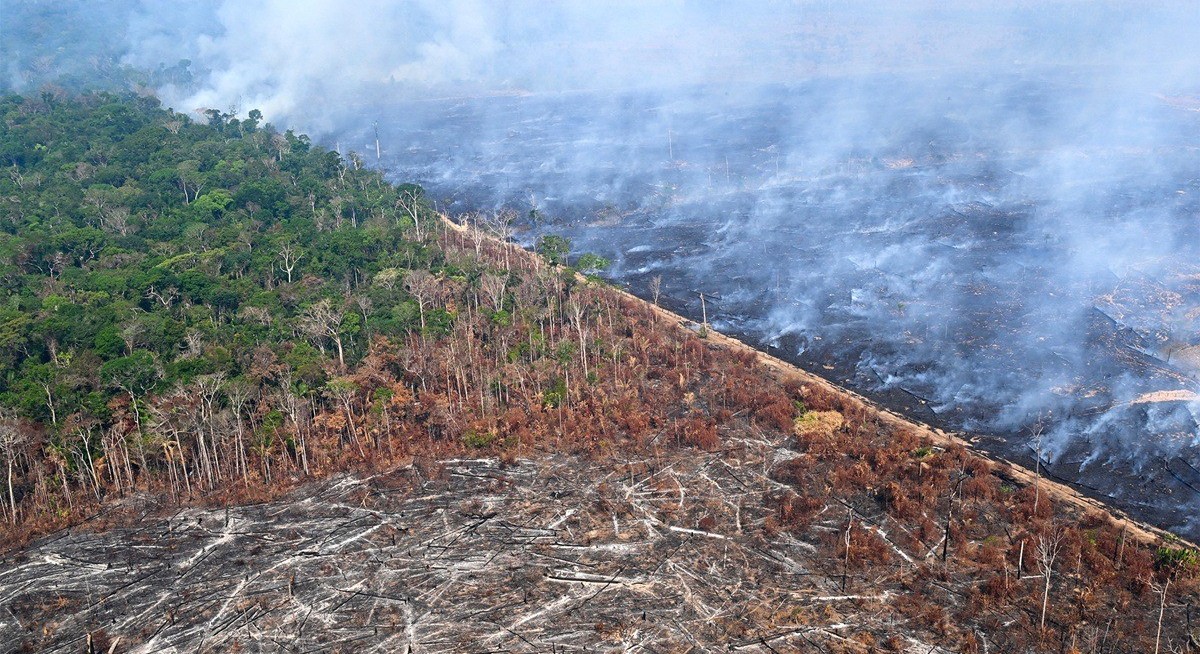(Nov 5): Banks have arranged more than US$425 billion of financing for the companies most responsible for deforestation over the past decade.
That includes US$72 billion provided to the beef, palm oil, soy, rubber, timber and paper industries in the past 18 months, according to data compiled by Forests & Finance since the Paris Agreement was announced in 2015.
“This is really showing that the financial sector isn’t aligning its financial flows with the objectives of the Paris Agreement,” said Stephanie Dowlen, one of the authors of the report. “And that was something that they were obliged to do.”
The comments come ahead of the United Nation’s COP30 climate summit in Brazil, where world leaders are starting to gather this week. “It’s clear that forest protection can’t be achieved by financing the same old chainsaw economy,” the Forests & Finance report said.
The increase in lending has coincided with a decline in the landmass covered by rainforests. Global loss of tropical and boreal forests, which play a key role in removing carbon dioxide from the air, accelerated last year with a record 6.7 million hectares destroyed, according to Global Forest Watch, a platform run by the non-profit World Resources Institute. More than half the loss was linked to fires made worse by record heat.
See also: CICT’s The Atrium@Orchard, Raffles City Singapore receive higher green building ratings from BCA
The banks doling out the most money to so-called forest-risk commodity companies are based in Brazil, led by Banco do Brasil SA. The lender provided credit of almost US$8 billion to the sector during the first nine months of this year, Forests & Finance found.
Banco do Brasil hasn’t responded to a request for comment.
Asset managers also are allocating more capital to the area, boosting their shareholdings in forest-risk commodity companies by US$7.8 billion over the past decade to roughly US$33 billion at the end of September, the report said. The pulp and paper industry received the biggest inflow, followed by palm oil companies.
See also: ISSB expands working group to harmonise cross-border adoption of sustainability reporting standards
This year, equity investments in deforestation-linked industries have climbed at asset managers including BlackRock Inc, Vanguard Group Inc and State Street Corp. The three firms are the world’s largest managers of index-tracking funds, which helps explain the increase because their funds must invest in all companies that are included in benchmark gauges.
BlackRock and State Street declined to comment, while Vanguard hasn’t responded to a request for comment.
Forests & Finance is part of a group of campaign and research organisations that includes Rainforest Action Network and Amazon Watch. Its report calls for governments to support financial regulations that make it “unlawful” for banks and investors to profit from deforestation and human-rights violations.
“What’s needed is for governments to really step up and regulate the financial sector because the incentives really need to change,” said Dowlen, a Forests & Finance campaigner at Rainforest Action Network. “At the moment, it’s just too lucrative to profit from deforestation.”
Uploaded by Liza Shireen Koshy





